It can be said that Climate change (CC) and environmental degradation (ESD) are common problems of all mankind, therefore, the international community has paid attention and organized many summits to sign conventions in this field very early, in which, typically the United Nations Framework Convention on Climate Change and the Kyoto Protocol, the Paris Agreement on Climate Change. In the content of the United Nations Framework Convention on Climate Change, the entire Convention includes a preamble, 26 articles and 2 annexes. The goal of countries participating in this convention is to achieve the stabilization of greenhouse gas concentrations in the atmosphere at a level that can prevent dangerous human interference with the climate system as well as ensure that food production is not threatened and ensure sustainable development. To achieve this goal, countries participating in the convention must comply with principles such as parties must take prudent measures to anticipate, prevent or reduce the causes of climate change and mitigate the harmful effects of climate change; emphasize
economic development through an open and supportive international economic system, especially for the system of developing countries to create resources that can respond to the problem of climate change. [caption id="attachment_606752" align="alignnone" width="690"]
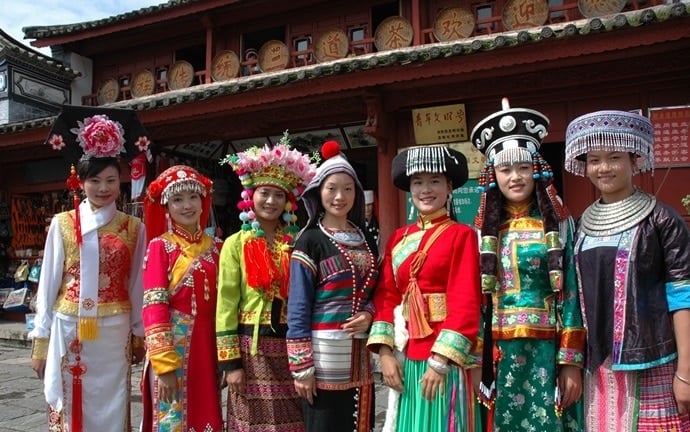
It can be said that China has a large
political and economic presence in the region, and at the same time, plays a very important role in climate change response and environmental protection activities in the Southeast Asian region in general and in China in particular. Currently, China has key policies related to climate change and environmental protection activities with the goal of protecting the environment and minimizing greenhouse gas emissions. With that goal, China has introduced a number of measures.
First, China simultaneously uses both "carrot" (incentives, rewards) and "stick" (punishment) policies. This means that the Chinese government will have a practical reward policy (based on benefits and positions) such as year-end evaluation of cadres and civil servants, promotion, salary increase or bonus, other material benefits such as (free travel, free entertainment services, participation in training and
tourism ) and other supports such as housing subsidies, health care and opportunities for higher education if cadres and civil servants complete well tasks related to climate change and STMT activities. The "stick - punishment" measure means that in case cadres and civil servants do not complete assigned targets related to the field of climate change and STMT, it is one of the main bases for having to suffer penalties such as not being promoted, being transferred to remote areas, and in a few cases being fired.
Second, China assigns personal responsibility to local leaders (including the Party Committee and the Government). This means that this group of people are required to sign a personal responsibility contract with the aim of committing to incorporate annual energy and emissions requirements at their local level, and are responsible for leading the implementation of those commitments. [caption id="attachment_606753" align="alignnone" width="768"]
 Third,
Third, China uses a green target-based planning system. This means that China will develop annual green standards and require all localities to sign a commitment to implement this planning system. To achieve this goal, China has promoted inter-local environmental management capacity to fully protect ecosystems. However, this measure is currently considered not feasible in practice, but another positive aspect is to promote awareness of the interconnectedness in responding to climate change and STMT.
Fourth, China encourages international cooperation as well as encourages organizations and individuals to participate in environmental protection as well as improve the capacity to respond to climate change. Specifically, China expands the participation of environmental NGOs in press conferences. At the same time, China improves the quality of environmental information provision from policy planning to implementation.
 It can be said that China has a large political and economic presence in the region, and at the same time, plays a very important role in climate change response and environmental protection activities in the Southeast Asian region in general and in China in particular. Currently, China has key policies related to climate change and environmental protection activities with the goal of protecting the environment and minimizing greenhouse gas emissions. With that goal, China has introduced a number of measures. First, China simultaneously uses both "carrot" (incentives, rewards) and "stick" (punishment) policies. This means that the Chinese government will have a practical reward policy (based on benefits and positions) such as year-end evaluation of cadres and civil servants, promotion, salary increase or bonus, other material benefits such as (free travel, free entertainment services, participation in training and tourism ) and other supports such as housing subsidies, health care and opportunities for higher education if cadres and civil servants complete well tasks related to climate change and STMT activities. The "stick - punishment" measure means that in case cadres and civil servants do not complete assigned targets related to the field of climate change and STMT, it is one of the main bases for having to suffer penalties such as not being promoted, being transferred to remote areas, and in a few cases being fired. Second, China assigns personal responsibility to local leaders (including the Party Committee and the Government). This means that this group of people are required to sign a personal responsibility contract with the aim of committing to incorporate annual energy and emissions requirements at their local level, and are responsible for leading the implementation of those commitments. [caption id="attachment_606753" align="alignnone" width="768"]
It can be said that China has a large political and economic presence in the region, and at the same time, plays a very important role in climate change response and environmental protection activities in the Southeast Asian region in general and in China in particular. Currently, China has key policies related to climate change and environmental protection activities with the goal of protecting the environment and minimizing greenhouse gas emissions. With that goal, China has introduced a number of measures. First, China simultaneously uses both "carrot" (incentives, rewards) and "stick" (punishment) policies. This means that the Chinese government will have a practical reward policy (based on benefits and positions) such as year-end evaluation of cadres and civil servants, promotion, salary increase or bonus, other material benefits such as (free travel, free entertainment services, participation in training and tourism ) and other supports such as housing subsidies, health care and opportunities for higher education if cadres and civil servants complete well tasks related to climate change and STMT activities. The "stick - punishment" measure means that in case cadres and civil servants do not complete assigned targets related to the field of climate change and STMT, it is one of the main bases for having to suffer penalties such as not being promoted, being transferred to remote areas, and in a few cases being fired. Second, China assigns personal responsibility to local leaders (including the Party Committee and the Government). This means that this group of people are required to sign a personal responsibility contract with the aim of committing to incorporate annual energy and emissions requirements at their local level, and are responsible for leading the implementation of those commitments. [caption id="attachment_606753" align="alignnone" width="768"]  Third, China uses a green target-based planning system. This means that China will develop annual green standards and require all localities to sign a commitment to implement this planning system. To achieve this goal, China has promoted inter-local environmental management capacity to fully protect ecosystems. However, this measure is currently considered not feasible in practice, but another positive aspect is to promote awareness of the interconnectedness in responding to climate change and STMT. Fourth, China encourages international cooperation as well as encourages organizations and individuals to participate in environmental protection as well as improve the capacity to respond to climate change. Specifically, China expands the participation of environmental NGOs in press conferences. At the same time, China improves the quality of environmental information provision from policy planning to implementation.
Third, China uses a green target-based planning system. This means that China will develop annual green standards and require all localities to sign a commitment to implement this planning system. To achieve this goal, China has promoted inter-local environmental management capacity to fully protect ecosystems. However, this measure is currently considered not feasible in practice, but another positive aspect is to promote awareness of the interconnectedness in responding to climate change and STMT. Fourth, China encourages international cooperation as well as encourages organizations and individuals to participate in environmental protection as well as improve the capacity to respond to climate change. Specifically, China expands the participation of environmental NGOs in press conferences. At the same time, China improves the quality of environmental information provision from policy planning to implementation.


![[Photo] Binh Trieu 1 Bridge has been completed, raised by 1.1m, and will open to traffic at the end of November.](https://vphoto.vietnam.vn/thumb/1200x675/vietnam/resource/IMAGE/2025/10/2/a6549e2a3b5848a1ba76a1ded6141fae)






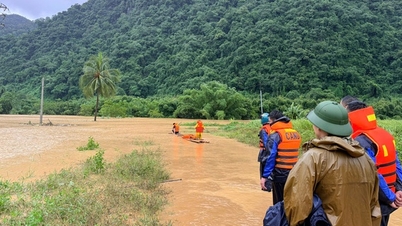





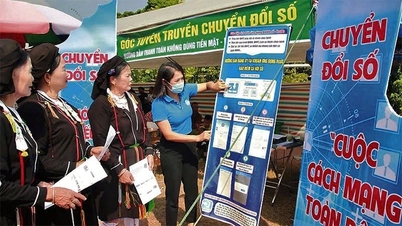

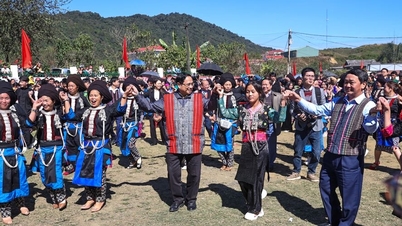






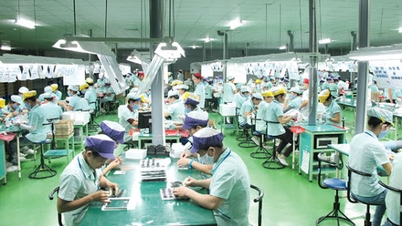
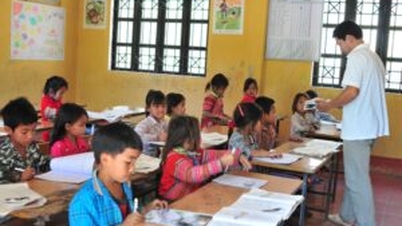

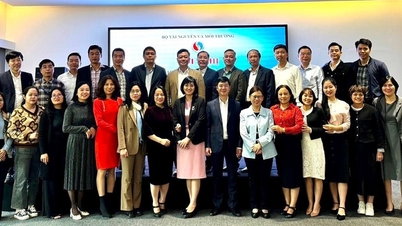


















































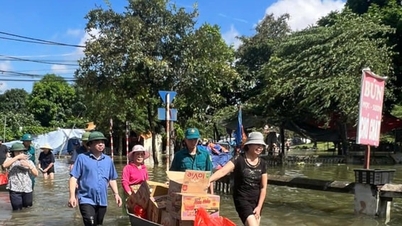



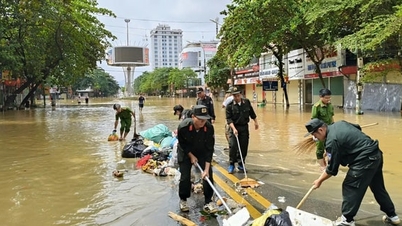













Comment (0)